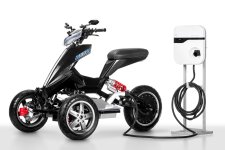onemorejoltwarden
100 W
NYC "ebike" fires from DEC
https://www.nydailynews.com/new-york/ny-east-village-ebike-fatal-fire-20211217-q3clvufyuzgcbmaobhumncbfam-story.html
Several disturbing QUOTES:
In the past, the victims and their vehicles were both brought to the hospital inside the ambulances.
“These items are not to be removed by field units,” reads the new directive. “They are even more dangerous when transported in confined spaces. ... Under no circumstances is a unit to transport an e-bike or a scooter in the back of an ambulance when transporting a patient.” FDNY
Pretty disturbing piece, but NYDailyNews does that.
Also:
East Village fire victim was charging nine e-bike batteries at once when blaze exploded in apartment
https://jalopnik.com/nine-e-bike-batteries-cause-huge-nyc-apartment-fire-1848241582
Condo and Apprtment renter insurance is getting tougher to get and costlier in the wake of the Miami collapse last summer. Mine just created a demand that ALL EV's and their accessories be inspected for UL approval and inclusion in insurance.
The argument put forward was that there is a recognized fire hazard and that the EV owners are asking the others to assume their liability.
The above NYC issues were used as support.
These guys were apparently charging scooters as a business , and one might assume at some level there was a capacity to think safety and liability above the random level. ( I would say norm, but we know that is , um, not yet fully realized)
https://www.nydailynews.com/new-york/ny-east-village-ebike-fatal-fire-20211217-q3clvufyuzgcbmaobhumncbfam-story.html
Several disturbing QUOTES:
In the past, the victims and their vehicles were both brought to the hospital inside the ambulances.
“These items are not to be removed by field units,” reads the new directive. “They are even more dangerous when transported in confined spaces. ... Under no circumstances is a unit to transport an e-bike or a scooter in the back of an ambulance when transporting a patient.” FDNY
Pretty disturbing piece, but NYDailyNews does that.
Also:
East Village fire victim was charging nine e-bike batteries at once when blaze exploded in apartment
https://jalopnik.com/nine-e-bike-batteries-cause-huge-nyc-apartment-fire-1848241582
Condo and Apprtment renter insurance is getting tougher to get and costlier in the wake of the Miami collapse last summer. Mine just created a demand that ALL EV's and their accessories be inspected for UL approval and inclusion in insurance.
The argument put forward was that there is a recognized fire hazard and that the EV owners are asking the others to assume their liability.
The above NYC issues were used as support.
These guys were apparently charging scooters as a business , and one might assume at some level there was a capacity to think safety and liability above the random level. ( I would say norm, but we know that is , um, not yet fully realized)



